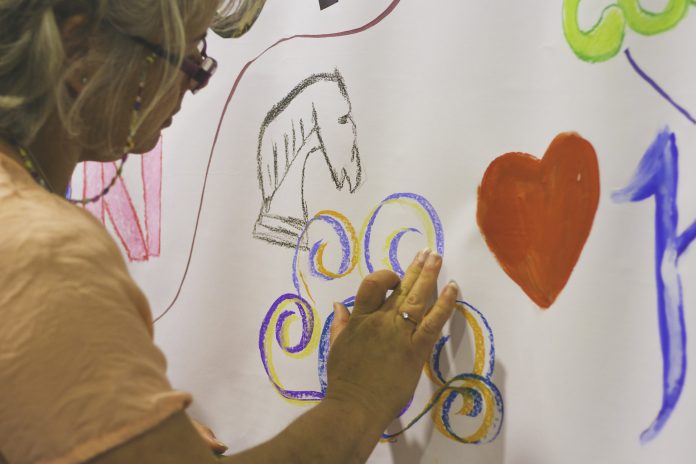- The Brisbane South program, Your Story Matters, encourages mental health recovery through creative mediums such as dance, music, and writing.
- Researchers at Griffith University conducted follow-up interviews with eight participants a year after their initial workshop
- Results showed the participants better understood their illness and thus shared it with more confidence
Research has shown that non-traditional interventions involving art mediums can have better outcomes for people with mental illness. Keeping this in mind, Brisbane South Partners in Recovery began Your Story Matters. A program aimed at helping people with severe mental health issues through the use of creative workshops. Participants explore various creative mediums including writing, music, art, and dance as they learn to share their mental health recovery journey.
Mental health treatment is provided within a biomedical framework, with many people telling their stories repeatedly to treating practitioners, focusing on negative aspects of their illness such as symptoms and difficulties. So, we used creative means to enable people to interpret and tell their stories in a different way, one which included painting, drawing, music, dance, and creative writing.
Victoria Stewart, lead researcher
Mental Health Recovery Through Art
Creative workshops can equip participants with a new language. Thus, making it easier to share their mental health journey in their own words and on their own terms. Consequently building confidence and helping them develop a deeper understanding of their mental illness.
Researchers at Griffith University conducted a one-year follow-up of eight participants from the workshop. The participants attended eight two-hour long creative workshops, over a period of three months. A professional artist along with peer mentors helped participants explore the four art mediums as they built confidence in telling their stories.
To investigate the benefits of the workshop, the researchers conducted interviews exploring participants’ experience with the workshops. Moreover, the study aimed to investigate any changes in the participants’ storytelling after ending a year of workshops. They published their findings in the journal PLOS ONE.
Sharing Stories
Results revealed that participants felt increased confidence in sharing stories of their mental health recovery. Furthermore, many of them reported a change in their storytelling with less emphasis on the negative aspect of their illness.
Participants also reported an increase in story telling from only sharing with their mental health professional, to sharing with their friends and family. Some even gained confidence to share their story more publicly.
The workshops also provided important opportunities for group work allowing participants to discuss a range of interests and share creative ideas. This gave them more confidence in social situations
Victoria Stewart, lead researcher
Future Workshops
Providing participants with a range of creative mediums allowed them to explore various ways of expressing themselves. However, certain mediums can trigger a patient’s traumatic experience. Therefore, the presence of mentors and trained facilitators is important in helping support the participants through these negative experiences.
The study demonstrates the benefits of creative workshops in mental health recovery. The authors of the study believe their work can help design future workshops aimed at supporting those with mental illness.
Reference:
Maddy Slattery et al. Participation in creative workshops supports mental health consumers to share their stories of recovery: A one-year qualitative follow-up study, PLOS ONE (2020). DOI: 10.1371/journal.pone.0243284
Makin S, Gask L. Getting back to normal: The added value of an art-based programme in promoting ‘recovery’ for common but chronic mental health problems. Chronic Illness. 2011; 8: 64–75. https://doi. org/10.1177/1742395311422613 PMID: 21985790




